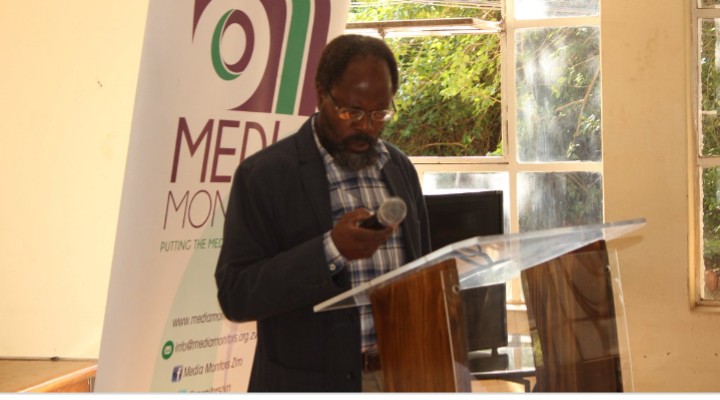|
Getting your Trinity Audio player ready...
|
Staff Writer
In the quest to capacitate media practitioners with skills to effectively report crises such as the Covid-19 pandemic and other health-related stories, a non-governmental organization that primarily advances the cause of women media practitioners as well as empowering women through the media, Gender and Media Connect (GMC) conducted a half-day virtual Health Reporting Workshop with various journalists representing different local media outlets.
The training’s main thrust was aimed at empowering members of the fourth estate on how best they can build fact-checked health articles about the global Covid-19 pandemic which is affecting the entire world.
The workshop which was held on the 10th of October 2021 also capacitated reporters with skills on how to remain creative and professional when telling their stories.
GMC said when the world faces a global crisis, the media is usually not ready to operate in such an environment yet they are the voice of the society thus the need to capacitate them with knowledge on how best they can report health issues in a more advanced way with credibility, transparency, and accountability.
“We have seen it necessary as GMC to train journalists on how to report on situations of disaster and crises like these. Communities need credible information and they need to be educated and the media has the crucial role to play. This workshop will also provide an opportunity for us as media practitioners on how we can support each other when it comes to crisis reporting. When reporting about Covid-19, professionalism, neutrality, and conducting an honest and balanced investigation, are among the important journalistic skills,” said a GMC representative.
The media trainer and consultant from ZimFact, Cris Chinaka told journalists that they are the publics’ mouthpiece who ought to play oversight, educative, informational roles and emphasised that there was a need for them to account for the position they hold and become trustworthy to the audience.
He highlighted that health was a broad important subject as he indicated that covering health particularly Covid-19 was significant because it is a matter of life and death which requires a broad approach that unpacks complicated details which the general public fail to understand.
“Approach is of paramount importance when covering health issues. For example, we are now getting into the rainy season and society becomes prone to malaria. As journalists, we must be able to know the important aspects to report on such as what support systems can be used to fight malaria in the country.
“When it comes to Covid-19 reporting, it is your duty to find out and educate the nation about the programs that emerge from the policy. It is our role to figure out who handles the programs and unpack the required skills to handle the programs; the importing and exporting costs of vaccines. We must provide well-sourced articles and provide evidence.”
Chinaka said Covid-19 stories were being reported in different versions where some journalists tend not to verify facts and urged participants to do their work with accountability.
“When running Covid-19 articles, verification is important. The story should be able to explain the cause and the solution. We are living in times where we can not deal with text only. There is a need to explain videos especially around Covid-19 stories.”
Chinaka also encouraged journalists to avoid labelling when covering health stories or health facilities’ infrastructure as he urged them to demonstrate and provide evidence.
“Try by all means not to label when doing health stories but provide evidence. There is still misunderstanding in the media and it is important for you as journalists to understand key elements when tackling Covid-19 and other health-related stories.
“Let’s go out there and tell good stories to the world. It’s extremely important that we do as much as possible to avoid labelling and demonstrate as well as foster solutions. I encourage you to do stories focusing not only on the negative but the positive, continue being professional.”
Chinaka added that Covid-19 is a global story and issue which is different from any other stories and the media should do their part with diligence focusing on how it has affected people’s lives as well as understanding key elements.
“Try to focus on how Covid-19 is impacting lives and livelihoods with credibility, transparency, and accountability, and don’t be too political. There is an audience who can’t afford to get it wrong so be careful. Think about the angle. it is not only about exploring the problem but also reaching out to experts. It’s about offering solutions, so reach out to people who have solutions. Facilitate conversations around Covid-19, new players: new costs, resources, the costs of other countries. It is important to articulate all that.”
Members of the media were also told that this is the time they should become relevant in the field when others are focusing on other stories.
“Right now, pay attention to health stories because everyone is looking for news to do with Covid-19 and I urge you to fully utilise your roles as the voice of the people,” said Chinaka.
GMC has been specifically advocating around gender and media issues since its inception in 1985.






